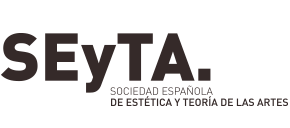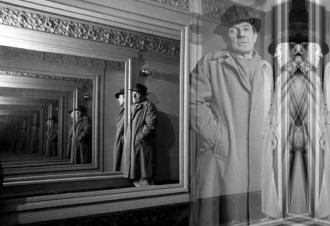Nijmegen, Países Bajos, 5 de junio de 2015. El cuarto congreso académico sobre Deleuze está dedicado a la relevancia de la estética en el pensador francés que siempre tuvo presente el arte en las discusiones sobre la política, el lenguaje, la ciencia y la metafísica. Se piden sobre todo contribuciones que traten la intersección de la teoría y la práctica, en la que un género, estilo, técnica, obra o trabajo individual sea utilizado como un «caso» para aclarar, movilizar, o transformar conceptos o pasajes de la obra de Deleuze, o viceversa. Envío de resúmenes hasta el 15 de marzo de 2015.
Deleuze & Aesthetics
Annual National Deleuze Scholarship Conference #4
Radboud University Nijmegen, The Netherlands, June 05, 2015
Keynote speaker/ professor Mark B. Hansen, Duke University
Call for papers/
A striking feature of Deleuze’s writings is that one never finds a sharp
distinction between philosophy and art. Within Deleuze’s philosophy, art
– taken here in its widest sense to include media, popular culture and
the creative industries – is always already present in discussions on
politics, language, science, and metaphysics. By no means does this
entail that art is reduced to a second-rate phenomenon. On the contrary,
a well-known Deleuzian dictum holds that the work of art must be able to
stand on its own. For Deleuze, philosophical thought itself must always
be a creative act, and the arts are privileged laboratories in which to
learn from and experiment with creative processes. This makes Deleuze’s
philosophy an ever fresh and relevant source from which to investigate
not just the arts, but also their relations to a host of contemporary
issues.
Within Deleuze’s philosophy, art
– taken here in its widest sense to include media, popular culture and
the creative industries – is always already present in discussions on
politics, language, science, and metaphysics.
When philosophy, art, and experiment align, our concern is no longer the
mere reflection on, but first and foremost the very production of
reality. Approaching art as a productive rather than reflective force
provokes questions concerning artistic practice and the creative process
itself. Issues at stake are the relation of art to pedagogy, politics
and ethics; the (non-)distinctions between artist-spectator, museum-
public space, and amateurs-professionals; the relation of art to
technology and the digital revolution of today; ‘classical’ notions of
goodness, beauty, style, and taste; and perhaps above all our co-
constitutive relation to color, sound, matter, form, narrative, and
movement. Also of interest is the often discussed predicament of
contemporary art and thought, in which sincere inventiveness,
exploration, emancipation, engagement, and creativity are permanently at
risk of regressing into hedonism, relativism, nihilism, and
commercialization.
We invite paper proposals concerning these and related issues. We
especially welcome papers operating on the intersection of theory and
practice, in which a genre, style, medium, oeuvre, or individual work is
used as a ‘case’ to clarify, mobilize, or transform concepts or passages
in Deleuze’s work, or vice versa.
Submissions should consist of a single PDF or .doc(x) file including a
300 word abstract, three to five keywords, your name and contact
information, and a short biography.
Please send your submission to DeleuzeNL2015@gmail.com before March
15, 2015. Please use the subject line «Abstract [your surname]». We aim
to inform you about the result of our selection process just after
Easter in April 2015.
If you want to attend without presenting, please register via
DeleuzeNL2015@gmail.com . Please use the subject line «Registration
[your surname]».
This one-day conference will consist of 3 panels with 3 speakers each, a
lunch, a keynote address at the end of the day, and a concluding
reception. Accepted speakers can sign up for a conference dinner at
their own expense. The fee for speaking at or attending the conference
is € 15,-.
Organization/
The conference is organized by prof.dr. Anneke Smelik and Arjen
Kleinherenbrink, with the support of the Radboud University’s Institute
for Historical, Literary, and Cultural Studies and the Faculty of
Philosophy, Theology, and Religious Studies.
Scientific committee/
Prof. R. Braidotti, Utrecht University; Dr.ir. A. Radman, TU Delft; Dr.
S. van Tuinen, Erasmus University Rotterdam; Dr. R. Dolphijn, Utrecht
University.
Stay up to date by bookmarking our website/
https://deleuzeNL2015.wordpress.com
Comparte esto:
- Haz clic para compartir en Facebook (Se abre en una ventana nueva)
- Haz clic para compartir en Twitter (Se abre en una ventana nueva)
- Haz clic para compartir en LinkedIn (Se abre en una ventana nueva)
- Haz clic para compartir en Tumblr (Se abre en una ventana nueva)
- Haz clic para enviar un enlace por correo electrónico a un amigo (Se abre en una ventana nueva)









